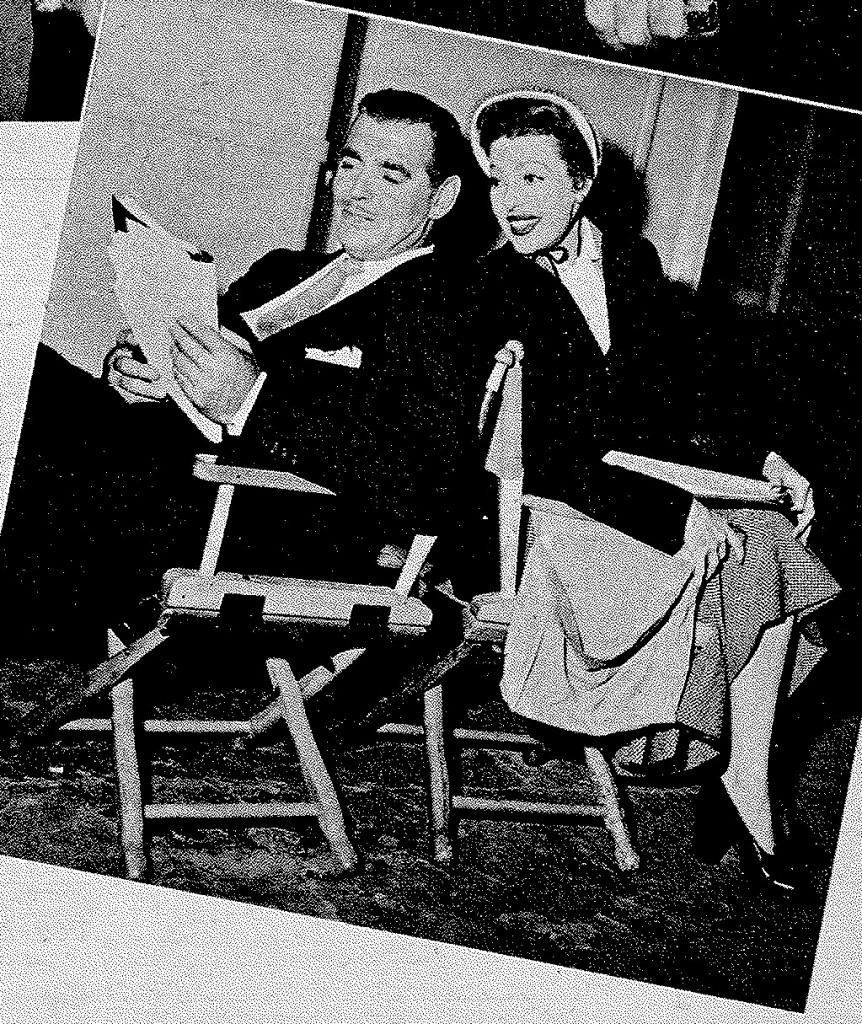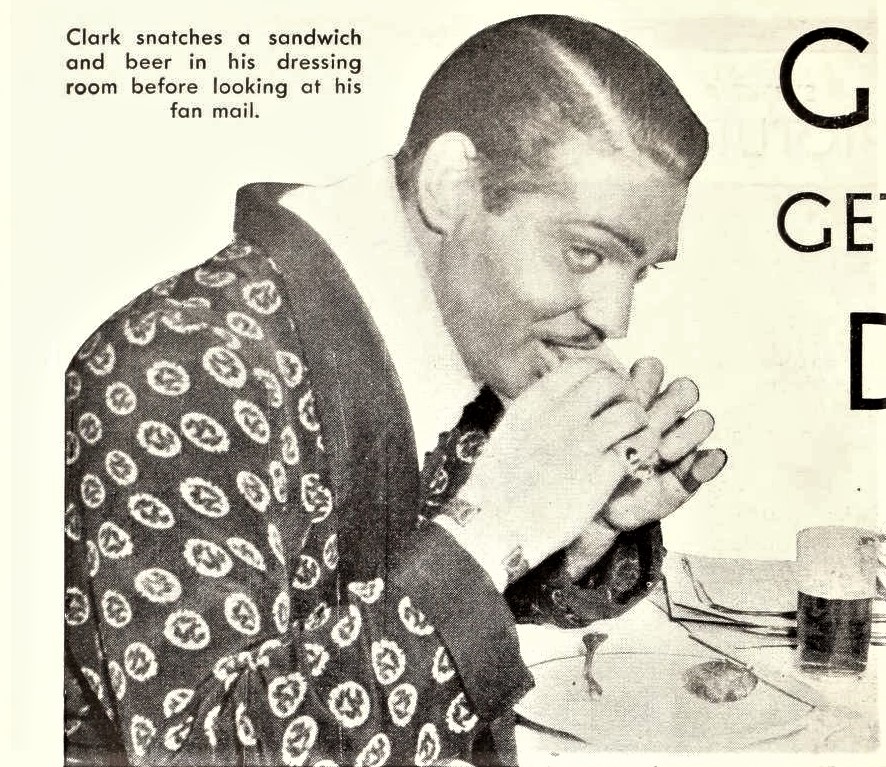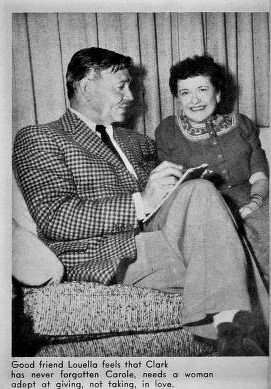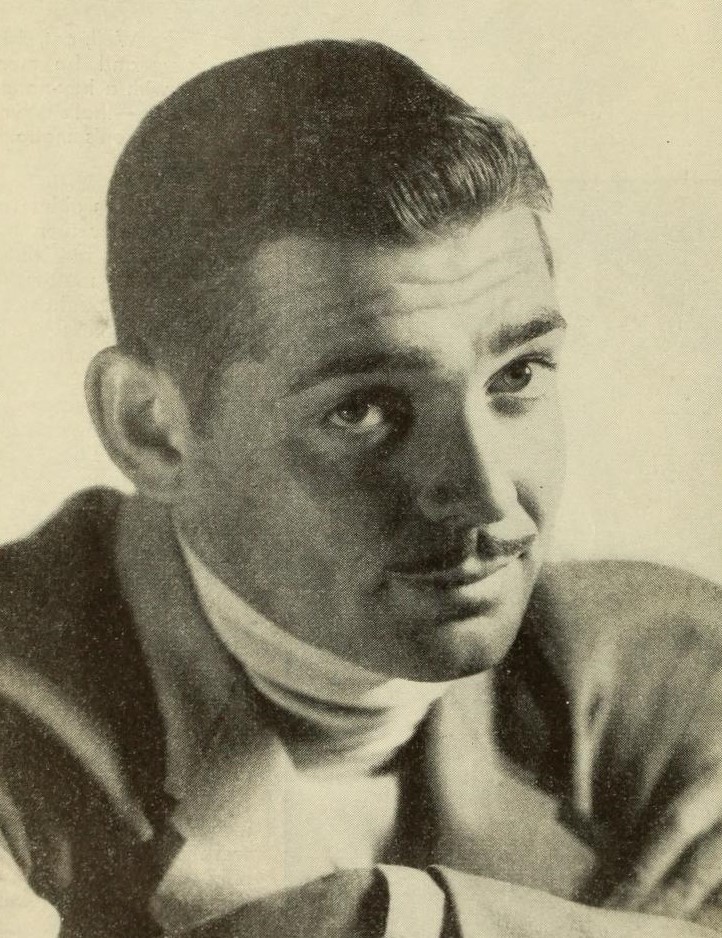{New Article} 1950: Just Call Him King

Earlier in the week we looked at the essay Clark Gable wrote about his co-star, Loretta Young, as publicity for Key to the City.
An innocent idea, certainly, except of course when said co-stars had a secret child fifteen years earlier.
So let’s see what Loretta had to say about Clark, shall we…
I first met Clark Gable about twelve years ago when we co-starred in a woodsy drama entitled “The Call of the Wild.” Although we were given top billing, the real star of the picture was a massive dog named Buck. The rest of us, compared to the instant attention Buck’s slightest bark commanded, were no more impressive than a chorus of gnats.
Buck lived in a steam-heated trailer; the rest of us shivered in the Summer quarters of a rustic hotel whose Winter quarters had burned the previous year.
When our picture company was marooned for nine days by twenty-one feet of snow, Buck was accorded the steaks our larder afforded whereas the rest of us were reduced to crackers, scrambled eggs and breakfast cereal.
After the storm had abated, we went to work in temperatures which ranged from ten to thirty degrees below zero. This is the way the scenes were worked out: the human members of the company were sent for, rehearsed, and stationed in their places. THEN the word would be sent out for Buck to be rushed from his cosy quarters into camera range. He would do his bit. The instant the camera stopped turning, Buck would be hurried back to his plush apartment while we chilblained actors flailed ourselves with our arms to keep from congealing. We also smiled wanly in Buck’s direction just to keep our facial muscles from freezing.
Throughout this murderous situation, the only person who never lost his temper, and who never looked at Buck and wondered how Huskie steaks would taste, was Clark Gable. No matter how trying the working and living conditions became, he was always the affable gentleman, who made no demands upon his fellow workers. He expected no favors—although he was a big star even then—and when tempers flared he would say peaceably, “We won’t remember what this was all about in a hundred years. Let’s get going and get this thing finished.”
I remember that he had brought along a supply of books and magazines, adventure stories, sports stories, westerns and the like, and that he served as a one-man library. At the end of nine days of enforced inactivity and imprisonment we would all have had what is known as “Cabin Fever” (the urge to kill) if it hasn’t been for that reading matter.
He could also be depended upon to start a card game when people became short-tempered and restless. He would play anything, could win when he wanted to, could lose when it seemed diplomatic.
Although I was only a careless youngster at the time—spending most of the time at the window waiting for the messenger boy, on snowshoes, to bring the mail in which I thought there might be a letter from a lad in Los Angeles in whom I was deeply interested—I was aware of the great diplomatic ability and keen sportsmanship of Clark Gable.
One of the things that is so admirable about Clark Gable is the consistency of his character. So she seems rather in awe of him, doesn’t she.
According to a friend who knows Clark well, he still carries a locket in which there is a soft, blonde curl—Carole Lombard’s.
The years have brought changes around Clark Gable, and they have brought changes within him. He is a better actor now than ever, and a wiser human being.
Before we started the picture, I had a print of that wonderful old picture, “It Happened One Night,” run for me so that I could study Clark’s comedy technique. He was impressive. However, when I saw the rushes of “Key to the City” I realized that he was even better than ever in the first comedy role he has assayed since “It Happened One Night.”
In closing, I would like to say that the Clark Gable who is called “King” in his studio is something far more important than a king to his fellow Americans: he is a real man.
It’s interesting she briefly brings up Carole Lombard, as apparently the news that Clark had married Carole deeply saddened Loretta, who had hoped that Clark would marry her when he was finally free.
You can read the article in its entirety in The Article Archive.



One Comment
Barry Lane
The thing about Carole’s hair in a locket, or something similar, seems to be born out by others.